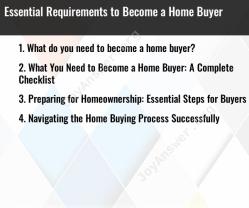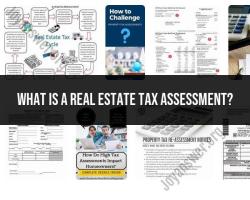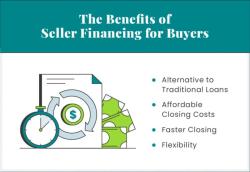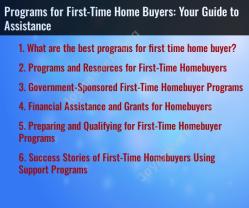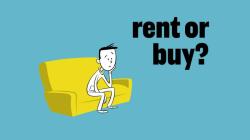Should I pay off my interest only mortgage?
Deciding whether to pay off an interest-only mortgage depends on various factors, including your financial situation, long-term goals, and the terms of your mortgage. Here are some considerations to help you make an informed decision:
Reasons to Consider Paying Off an Interest-Only Mortgage:
Reducing Debt: Paying off your mortgage reduces your overall debt, providing financial security and peace of mind.
Interest Savings: By paying off the principal, you can save on future interest payments, potentially saving a substantial amount over the life of the loan.
Equity Building: Paying off the mortgage builds equity in your home, which can be beneficial for future financial decisions, such as selling the property or using it as collateral for other investments.
Stability and Predictability: Transitioning to a traditional mortgage with principal and interest payments provides more stability in monthly payments and makes it easier to predict future housing costs.
Financial Flexibility: Without the burden of mortgage payments, you may have more financial flexibility, enabling you to pursue other investments, save for retirement, or achieve other financial goals.
Reasons to Keep an Interest-Only Mortgage:
Investment Opportunities: If you believe you can earn a higher return on your money through other investments (such as the stock market or real estate), keeping the mortgage and using the funds elsewhere may make financial sense.
Liquidity: Keeping the mortgage preserves liquidity, allowing you to maintain a cash reserve for emergencies, investments, or other financial needs.
Tax Deductions: Mortgage interest can be tax-deductible. If you itemize deductions, keeping the interest-only mortgage may provide a tax advantage.
Cash Flow Management: Interest-only payments can result in lower monthly payments, providing better short-term cash flow flexibility.
Key Considerations:
Financial Goals: Consider your short-term and long-term financial goals. If reducing debt and owning your home outright align with your goals, paying off the interest-only mortgage may be a good choice.
Interest Rates: Evaluate the current interest rate on your mortgage. If it is relatively low, the cost of borrowing may be reasonable, and you might prioritize other financial goals.
Investment Strategy: Consider your confidence in alternative investment opportunities. If you believe you can earn a higher return than your mortgage interest rate, it may make sense to invest rather than pay off the mortgage.
Future Plans: Consider how long you plan to stay in the home. If you anticipate selling in the near future, the decision to pay off the mortgage may have different implications than if you plan to stay long-term.
Consult Professionals: Talk to a financial advisor or mortgage expert to get personalized advice based on your unique circumstances.
Ultimately, the decision to pay off an interest-only mortgage is a personal one and should align with your financial goals and comfort level with debt. Assess your priorities, evaluate the financial implications, and consider seeking professional advice to make an informed decision.
Weighing the Scales: To Pay Off Your Interest-Only Mortgage Early or Not?
The decision to pay off your interest-only mortgage early requires careful consideration. It's a complex financial puzzle with varying benefits and drawbacks, influenced by several factors.
1. Should You Pay Off Early?
There's no one-size-fits-all answer. However, paying off early may be advantageous if:
- Interest rates are rising: Locking in the current low rate on your principal early can save you money in the long run.
- You have significant savings: Prepaying a substantial sum reduces your total interest and frees up future cash flow.
- You're uncomfortable with the risk: Interest-only mortgages often shift to higher fixed rates later, which may cause financial strain.
- You want peace of mind: Owning your home debt-free provides emotional security and stability.
2. Factors to Consider:
- Opportunity cost: Investing your savings elsewhere might yield higher returns than prepaying the mortgage.
- Future financial needs: Unexpected expenses or life changes could require access to those savings.
- Current economic climate: Consider general economic trends and your job security before making big financial decisions.
- Tax implications: Consult a tax advisor to understand potential tax benefits or consequences of early payoff.
3. Strategic Mortgage Management:
Whether you decide to pay off early or not, it's crucial to manage your mortgage strategically for financial well-being. Here are some tips:
- Make regular extra payments: Even small extra amounts can significantly reduce your total interest and shorten the loan term.
- Refinance to a fixed-rate mortgage: Lock in a fixed rate before the interest-only period ends to avoid potential spikes.
- Build an emergency fund: Ensure you have sufficient savings to cover unexpected expenses without dipping into your mortgage payments.
- Stay informed about the housing market: Understanding market trends can help you make informed decisions about selling or refinancing your home.
Remember: Consulting a financial advisor is highly recommended to tailor a personalized strategy based on your unique circumstances and financial goals. They can help you navigate the complexities of your mortgage and choose the path that best suits your financial well-being.
Ultimately, the decision to pay off your interest-only mortgage early is a personal one. Weigh the benefits and drawbacks carefully, consider your financial situation and risk tolerance, and seek professional guidance to make the best choice for your future.








